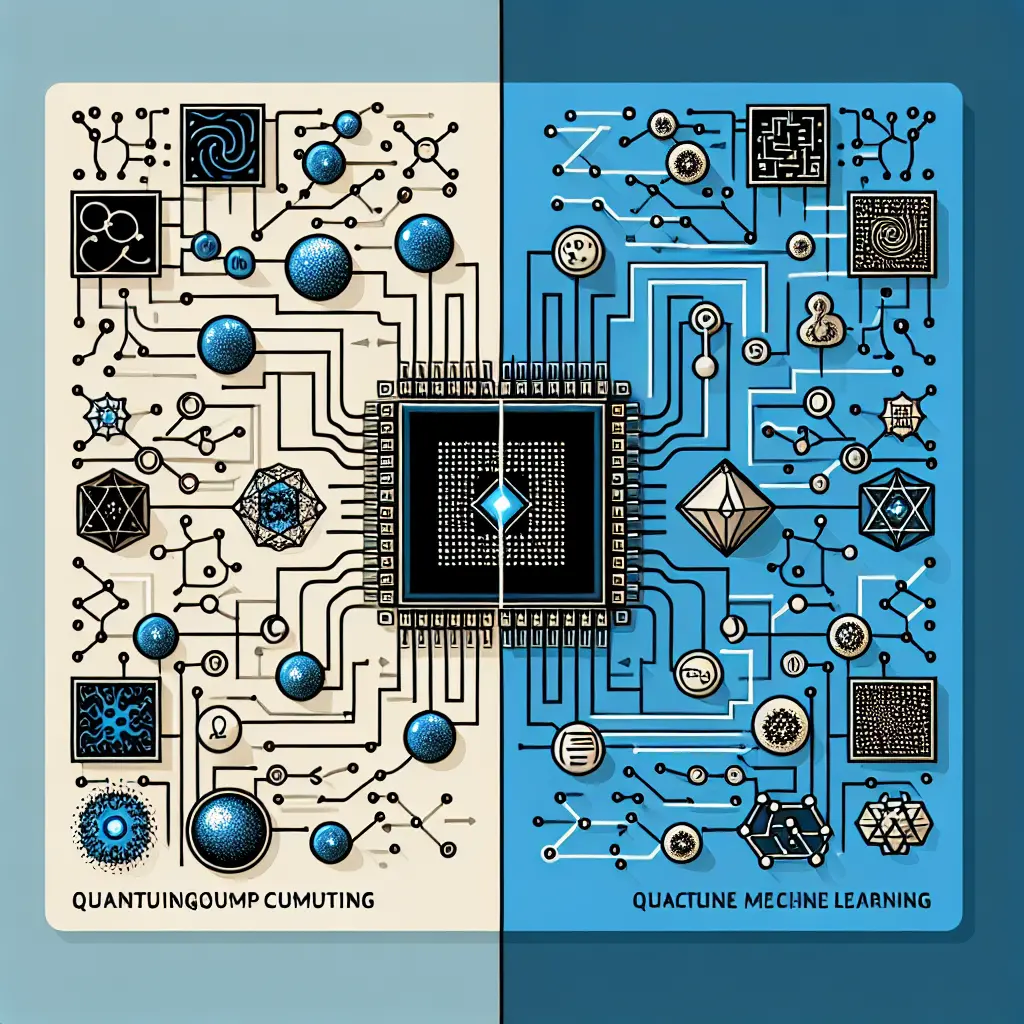
In recent years, the intersection of quantum computing and machine learning has emerged as a fascinating frontier, capturing the imagination of researchers and industry professionals alike. As quantum technology continues to evolve, its influence on machine learning advancements becomes increasingly significant, heralding a new era of innovation.
Quantum computing offers unparalleled processing power, providing the potential to revolutionize quantum machine learning through sophisticated quantum algorithms. These algorithms promise to solve complex problems more efficiently than classical counterparts, paving the way for groundbreaking machine learning innovations.
Revolutionizing Data Processing with Quantum Algorithms
One of the most exciting aspects of quantum computing is its ability to process vast amounts of data at unprecedented speeds. Quantum algorithms, such as Shor's and Grover's algorithms, are designed to solve specific problems more efficiently than classical algorithms. This characteristic is invaluable for machine learning advancements, where processing large datasets quickly and accurately is crucial.
Recent developments in quantum computing have furthered this potential. For instance, IBM has been exploring how quantum computing could mitigate the soaring costs of AI training. The exponential growth in data and computational demands make traditional methods increasingly unsustainable. Quantum computing offers a compelling solution by accelerating data processing and reducing overall computational expenses, thereby facilitating more cost-effective machine learning innovations.
Enhancing Machine Learning with Quantum Entanglement
Quantum entanglement, a unique property of quantum mechanics, allows qubits to be interconnected in ways that classical bits cannot. This capability can lead to significant improvements in machine learning models by enabling more complex computations and data correlations. Recent advancements have demonstrated the feasibility of maintaining entangled photons over existing fiber-optic networks, which could drastically improve communication and data analysis methods.
Such breakthroughs in quantum technology open new avenues for developing quantum-enhanced machine learning techniques. By leveraging entangled qubits, researchers can create models that significantly outperform their classical counterparts, offering more accurate predictions and insights.
Quantum Computing's Broader Impact on Machine Learning
The influence of quantum computing extends beyond individual algorithms and techniques. It represents a paradigm shift in how machine learning problems are approached and solved. The potential for error-free quantum operations, as pursued by companies like Riverlane with their recent funding for quantum error correction, underscores the transformative impact of quantum technology on AI development.
Furthermore, initiatives like PsiQuantum's plan to build the largest quantum computing facility in the US highlight the rapid advancements in quantum infrastructure that are poised to support large-scale machine learning applications. These facilities will provide the necessary resources for developing more sophisticated quantum AI models, propelling the future of machine learning into new realms.
Real-World Applications and Future Prospects
As we explore the real-world applications of quantum computing in AI, it's clear that this synergy has far-reaching implications. From improving cybersecurity through quantum encryption to enhancing predictive modeling in various industries, the applications are diverse and impactful.
For instance, modular quantum information processing systems are being developed to enable scalable and efficient quantum operations. These systems promise to facilitate seamless integration of quantum technologies into existing AI frameworks, enhancing overall system performance and reliability.
Additionally, the discovery of new states of matter and their potential applications in advanced materials and quantum computing further emphasizes the innovative landscape shaped by ongoing quantum research. These discoveries could lead to more robust and efficient hardware for running complex quantum machine learning algorithms.
Embracing the Future: Challenges and Opportunities
While the prospects are promising, integrating quantum computing with machine learning also presents challenges. The complexity of developing practical quantum systems and the need for specialized knowledge are significant hurdles that must be addressed. However, with continued investment in research and development, these challenges offer opportunities for innovation and growth in both fields.
As we look towards the future, it is evident that the intersection of quantum computing and machine learning is set to redefine industries. The ongoing trends in quantum computing research reflect a commitment to overcoming current limitations and unlocking new potentials. By embracing these advancements, we can expect a future where machines learn and achieve at levels previously unimaginable.
Conclusion: Quantum and Machine Learning – A Future of Unbounded Possibilities
In summation, the convergence of quantum computing and machine learning is poised to revolutionize technology and redefine what is achievable in data processing and predictive modeling. The extraordinary speed and efficiency of quantum algorithms, combined with the unique properties of quantum entanglement, are setting new standards in machine learning. These advancements not only promise faster and more cost-effective data handling but also open doors to more complex and insightful analyses.
The ongoing development in quantum infrastructure and error correction indicates a robust future for AI innovations. Real-world applications are already surfacing, from improved cybersecurity measures to enhanced predictive capabilities across industries. The integration of quantum technologies into existing AI frameworks is becoming increasingly seamless, paving the way for revolutionary advancements in computing.
Despite the challenges, such as the complexity of developing practical quantum systems, the potential rewards are substantial. Continued research and investment are vital to overcoming these hurdles, promising a future where machines learn with unprecedented precision and effectiveness.
As we stand on the brink of this technological frontier, I invite you to reflect on the transformative potential of these innovations. Consider how they might impact your industry or field of interest. Engage with the community by sharing your thoughts or experiences—your insights could contribute to shaping this exciting landscape.
Together, let's embrace the opportunities that lie ahead and embark on this journey of discovery and innovation. The future is quantum, and it’s brimming with endless possibilities.
Author: Derek Hartman